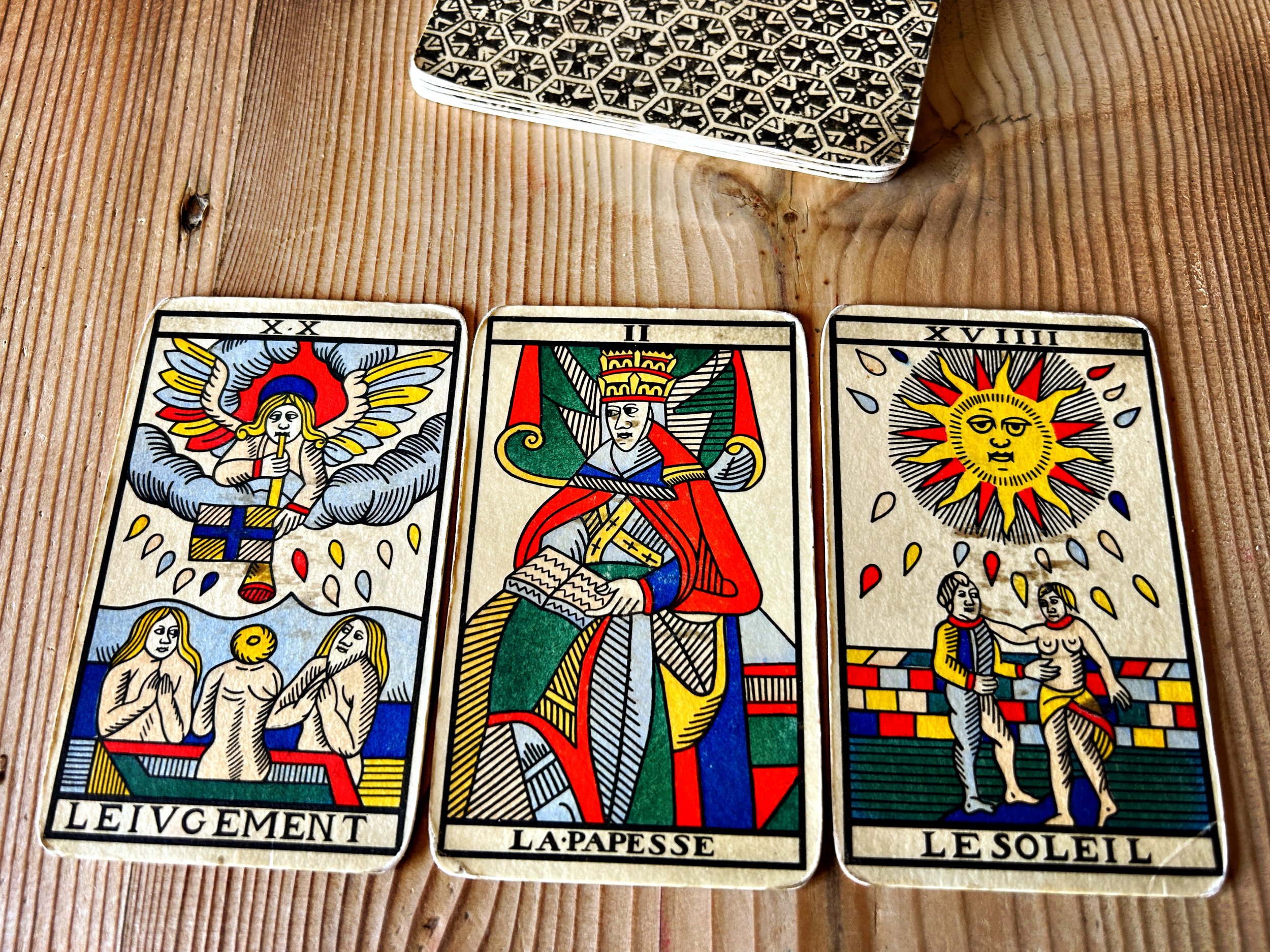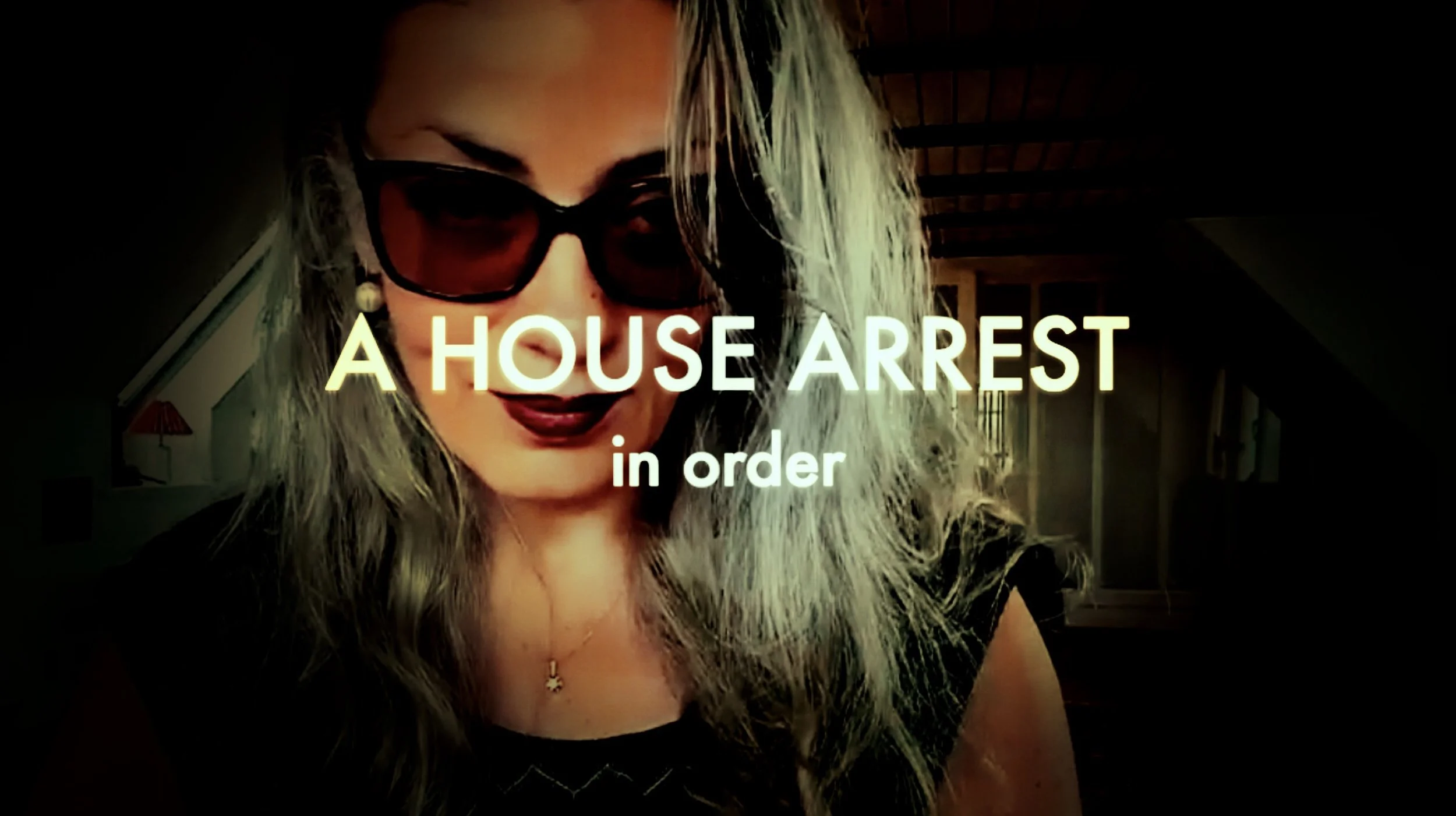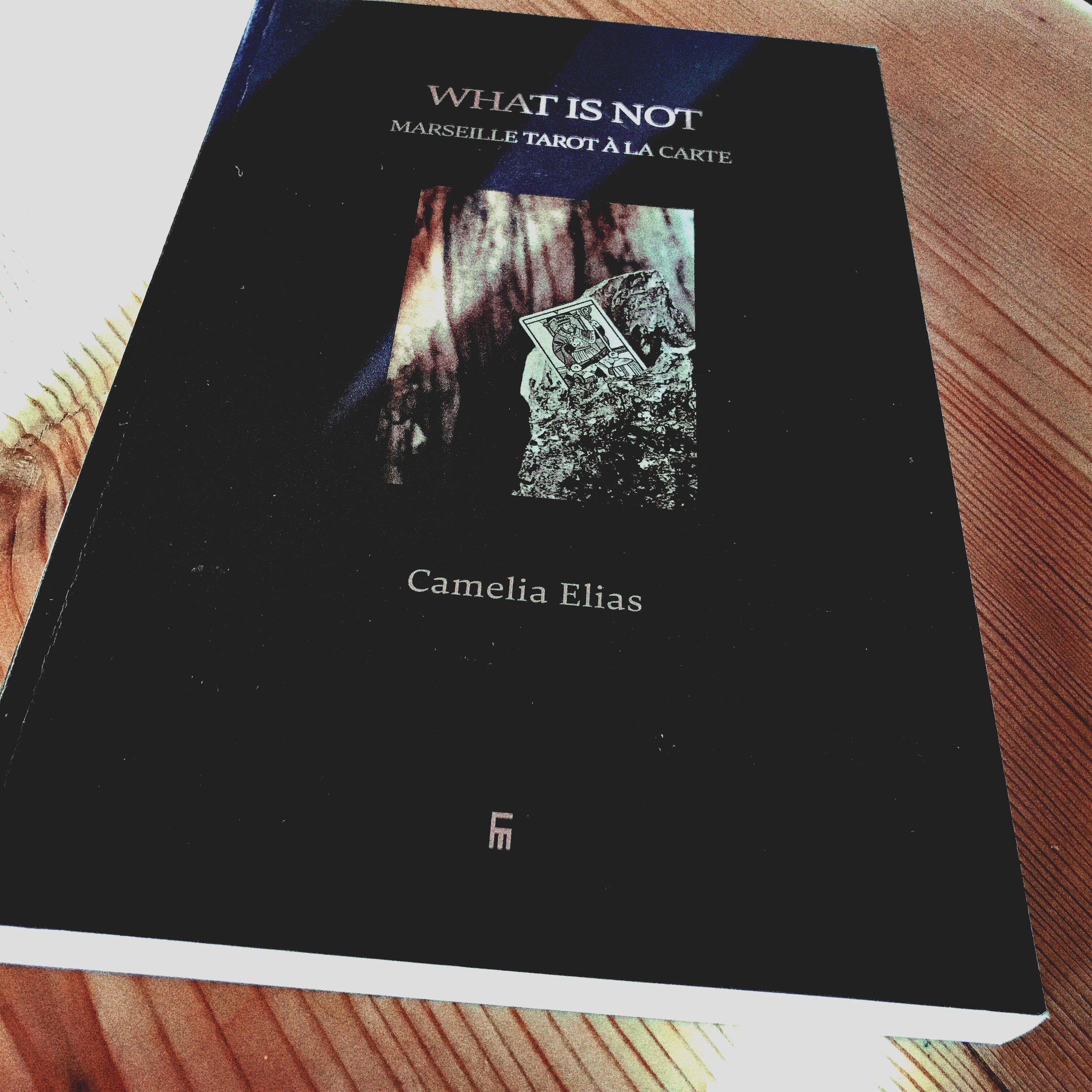The question of time in cartomancy
There are several questions that preoccupy me in fortunetelling and cartomancy at large, but here I want to address two of them: what do we do with our time when read the cards, and how do we read time in the cards? From the perspective of technique, I’ve covered time and timing in my Read like the Devil trilogy of books, but let’s look at another angle here. From the perspective of all who indulge in the stereotype of the diviner as a con person, the answer to the first question is simple: ‘the diviner wastes the time of the gullible.’ As time is money, the loss is double, and it is as if this second loss hurts the most.
That may be so, but insofar as people seek diviners simply because they want an alternative answer to whatever else they may be wasting their time with, we cannot make a correlation between the presupposed ignorance of the people using diviners and their presupposed lack of common sense when it comes to what exactly they put both their time and money into.
This being the case speaks already in favor the diviner herself deciding that, as far as she is concerned, she never wastes her time. Now, however, when we conflate what we make of our time with how we read timing into a set of cards, a more fascinating story emerges.
But before I get to sharing an example with the cards here, let me start with referencing what I recently said about time. If you prefer to jump right to the reading, then scroll down to the section on space, or go to the end of this essay for a visual experience of the cards, in the form of a recording.
Beyond time
In a talk about the question of being a prolific writer, Gordon White of the celebrated podcast, Rune Soup, wanted to know what my secret is. After emphasizing a strong discipline, the benefits of not having any children, and the good fortune of not having to cook, I told him that in my process of writing I never think about the time I invest in this art. I just sit at my desk and do it.
Extended to an analogy, this practice discloses that the most successful diviners have a similar approach to reading cards: they sit at their table and don’t think in terms of time. They just read the damn cards. Now, when we talk about fortunetelling as a business, we naturally talk about measuring the time we spend on a task or a question with the cards, for time is money, but I find that divining itself and what we make of it situates itself beyond time.
I would dare to say that without suspending our notion of time when we read the cards, we can't pass any commonsensical judgment on the probability of a particular future. As time is what is both probable and possible, what we operate with when we read the cards is not even a dimension, but rather a perception that is forever subject to both chance and place. So we’re here with a geography of the unknown and the imagination. This geography is exactly what makes divination fascinating. While we may read for the conceptual past, present, and future – all temporal dimensions clearly marked by the positionality of the cards in most standard fortunetelling settings – when we think about it, what we actually read for is not time itself as it relates to a person’s memory, current standing, or anticipated future. Rather, what we read for is actually space, the space the person in front of us occupies vis-à-vis their predicament.
If we look at the history of divination by omens, we clearly get the notion that the perception of time plays a major role. From the simple engaging with the oionoistic arts, or the reading of signs by various means – flight of birds, weather, ashes, or stars – to the reading of more sophisticated texts, such as the Book of Changes, or the I Ching, the book that prefigures the idea that events follow definite trends, diviners throughout the ages have always thought that what they did, essentially, was to read for good or bad auguries, or for the event that goes up or down in terms of impact, with ‘up’ being a marker of a blissful outcome and ‘down’ being a marker of things going to hell, or burning up in flames. But now think, are these metaphors not spatial metaphors already?
Thus, in reality, and closer to our times, even when the question is about momentum or the right moment to get married, get divorced, or have children, what the diviner reads for when divining is the place the person asking finds themselves in at the moment of the reading. As it relates to my personal experience, what I mean by this is that, even when someone is asking a question about timing, such as in the speculation about when a person might find work or ‘the one and only,’ what I end up delivering is almost always a reading for time as space, that is to say, time manifested as a spatial platform for people’s choices, one they either fully inhabit, or don't.
When I read the cards for others, what I read for is the different places, spaces, rooms, light and dark alleys available for them to either occupy or roam within in accordance with what is possible and plausible in terms of options. As far as how all this relates to time, descriptive or predictive, I have to admit that for all the thinking I’ve done around it, I’ve come to the solid conclusion that, in actuality, I never read for time. What I read for instead is space.
Space, and what we do with our time in it
Now let me exemplify with a set of three cards, as the idea here is not to launch further into a philosophical treatise about the relation of time to divination – to an extent, I’ve done this already in my book What is Not, featured below, in case anyone is interested. What I want to say here is that it pays off to consider how much attention you give, if any, to the notion of space, whenever you think that you're merely divining for a question about time. In addition, this consideration may also prove beneficial in case you need to address people’s accusations of your wasting their time with your ‘occult babble.’
Personally I haven’t experienced this myself, but I had the occasion to read the cards for fellow diviners who got quite upset about the pointed fingers. Once I even gave this line to a distressed diviner as a model for a response to the accusatory party: ‘I’m not making any predictions here. I’m just looking at the dump you're standing on.’ Bringing in the notion of space, when the other thinks you’re all about reading fortunes from the perspective of time, works wonders when it comes to destabilizing a strong prejudice.
But let’s look at a question from a mother who had issues with her son. She laid this on my table: ‘We have a conflict in the house. Will my 17-year old son rebel and do something stupid? As this is escalating, I wonder: when will it culminate, and what can I do to prevent this from happening?’
Three cards fell on the table: Judgment, the Popess, and the Sun. I said the following to her: ‘the rebellion is already happening and it takes the form of public exhibitionism. A friendly house arrest will be in order.’ The woman took my advice, and grounded her son. He was not allowed to go out anymore. She gave him a pep talk right after the book of good manners, she restrained him to the inner court, and he finally got the message. In the end, all was well again.
Now to the point. As you can see from this simple example, while the mother asked a question about timing, about when the rebellion would not only hit the family but also culminate, implicit in her query was also the question of space. Although I addressed the temporal dimension in her question and said that what she feared was happening already, what I saw in the cards was primarily space: the family grave (Judgment), the reading armchair (Popess), and the enclosed courtyard (Sun).
The event of the unfolding conflict was not of temporal nature, but rather, of spatial nature. In the course of the talk with the woman about it, what was also clear was the classic situation of her son wanting to take up more space in the family. What the woman further said was that she thought it would only be a matter of time, before her son would rise against the family, territorialize it, and try to become its head. In this case here, the more common fear of the son doing something stupid was not related to running away from home, but rather, it was related to his desire to take full control over the home. A nasty situation, especially since the mother reported that her son didn't have any legitimate claim for his actions.
I could give other examples here, each featuring various degrees of complexity in considering the time/space relationship in divination, but I’ll stop at this with a double invitation: first, to further think about what you're doing when you have to address a question about time in your divination sessions, or when you simply want to reflect on how time, when it manifests as memory or melancholia, relates to the actual space you operate with and within.
Second, I invite you to join the Read Like the Devil Practice Club, if a deepening of learning more about the application of the basic principles of reading the cards under the signature of ‘Read like the Devil’ is desired.
The visual take
For the ones inclined towards visuals, here below the reading above in the form of a short recording, accompanied by cool music that adds something new to the experience of both time and space. Enjoy!
*
What is Not
A book that deconstructs our mythologies, taking stock of what divination is and advancing a theory of what it isn’t.





